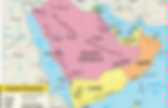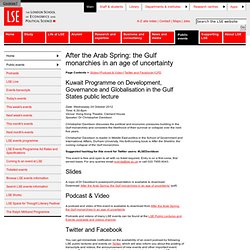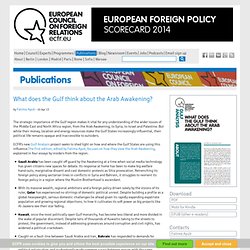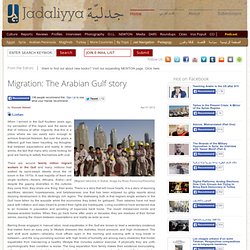

After the Arab Spring: the Gulf monarchies in an age of uncertainty - 10 - 2012. Kuwait Programme on Development, Governance and Globalisation in the Gulf States public lecture Date: Wednesday 24 October 2012 Time: 6.30-8pm Venue: Hong Kong Theatre, Clement House Speaker: Dr Christopher Davidson Christopher Davidson discusses the political and economic pressures building in the Gulf monarchies and considers the likelihood of their survival or collapse over the next five years.

Christopher Davidson is reader in Middle East politics in the School of Government and International Affairs, Durham University. His forthcoming book is After the Sheikhs: the coming collapse of the Gulf monarchies. Suggested hashtag for this event for Twitter users: #LSEDavidson This event is free and open to all with no ticket required. Slides A copy of Dr Davidson's powerpoint presentation is available to download: Download 'After the Arab Spring: the Gulf monarchies in an age of uncertainty'| (pdf) Podcast & Video.
Resilient royals: how arab monarchies hang on. After the Arab Spring: the Gulf monarchies in an age of uncertainty. What does the Gulf think about the Arab Awakening? The strategic importance of the Gulf region makes it vital for any understanding of the wider issues of the Middle East and North Africa region, from the Arab Awakening, to Syria, to Israel and Palestine.

But while their money, location and energy resources make the Gulf States increasingly influential, their political life remains opaque and inaccessible to outsiders. ECFR’s new Gulf Analysis project seeks to shed light on how and where the Gulf States are using this influence.The first edition, edited by Fatima Ayub, focuses on how they view the Arab Awakening, explained in four essays by insiders from the region. Saudi Arabia has been caught off guard by the Awakening at a time when social media technology has given citizens new spaces for debate. Its response at home has been to make big welfare hand-outs, marginalise dissent and cast domestic protests as Shia provocation. “The Gulf States can’t rely on spending their way out of crises at home and abroad forever.
Power and Politics in the Persian Gulf Monarchies. Migration: The Arabian Gulf story. When I arrived in the Gulf fourteen years ago, my perception of this region was the same as that of millions of other migrants, that this is a place where we can easily earn enough to achieve financial freedom.

But over the years, a different gulf has been haunting my thoughts: that between expectations and reality. In other words, the fact that many who come looking for gold are having to satisfy themselves with coal. There are around twenty million migrant workers in the Gulf and many millions had walked its sand-swept streets since the oil boom in the 1970s. A vast majority of them are single workers—Asians, Africans, Arabs—and despite the gaping diversities in the cultures they come from, they share one thing: their woes. Theirs is a story that will move hearts.
Barring those engaged in manual labor, most expatriates in the Gulf are known to lead a sedentary existence that makes them an easy prey to lifestyle diseases like diabetes, blood pressure, and high cholesterol. Arabian Peninsula.
Yemen. Oman. Saudi Arabia. Bahrain. United Arab Emirates. Kuwait. Qatar.